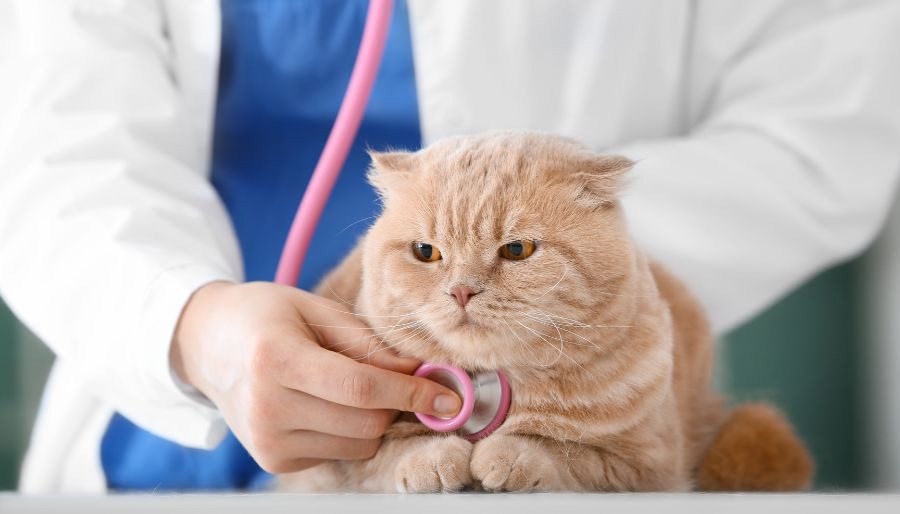Cats are known for their independence, but that doesn’t mean they don’t need regular care. Ensuring your cat has routine check-ups is vital for their long-term health and well-being. But how often should you schedule a visit? Let’s explore the key factors and benefits of regular vet check-ups for cats, and why it’s essential for UK cat owners to keep a close eye on their feline friends.
Why Are Regular Check-Ups Important?
Cats are masters at hiding illnesses. Unlike dogs, who might show discomfort, cats often mask signs of pain or sickness, making it harder to detect when something is wrong. Regular vet check-ups can help catch potential health problems before they become serious, giving your cat the best chance of a long, happy, and healthy life.

Early detection of illnesses
Regular checks can identify issues such as dental disease, kidney problems, diabetes, and obesity early on.
Preventative care
Routine vaccinations, flea and tick treatments, and deworming can prevent severe health issues.
Nutritional advice
Cats dietary needs change as they age. Vets can provide tailored nutritional advice to ensure your pet is getting the best care.

Recommended Frequency of Vet Visits for Cats
So, how often should you take your cat to the vet? The frequency can depend on your cat’s age, health status, and lifestyle.
- Kittens (0-6 months) Frequency: Every 3-4 weeks
Reason: During the first six months, kittens require regular vaccinations, flea treatments, and deworming. It’s also essential to monitor their growth and development, addressing any early behavioural or health issues.
- Adult Cats (1-7 years) Frequency: Once a year
Reason: Annual health checks are recommended for healthy adult cats. These visits allow for routine vaccinations, general health assessments, and preventative care.
- Senior Cats (7+ years) Frequency: Every 6 months
Reason: As cats age, they become more susceptible to health issues like arthritis, kidney disease, and dental problems. More frequent vet visits can help detect age-related conditions early and manage them effectively.
What to Expect During a Routine Check-Up
During a routine vet check, the vet will perform a comprehensive examination, which typically includes:
Physical examination: Checking for signs of weight loss, lumps, dental issues, and overall physical health.
Blood tests: Screening for common illnesses like kidney or liver disease, especially in older cats.
Vaccinations: Ensuring your cat is up-to-date with all necessary vaccinations.
Parasite control: Advice on effective flea, tick, and worm prevention.

Tips to Make Vet Visits Less Stressful for Your Cat
Use a comfortable carrier: Ensure your cat feels safe and secure in their carrier. Consider leaving the carrier out at home so your cat can get used to it.
Calm environment: Keep the car ride calm and quiet. Covering the carrier with a towel can help reduce stress during the journey.
Rewards and treats: After the visit, reward your cat with a favourite treat or toy to create a positive association with vet trips.


